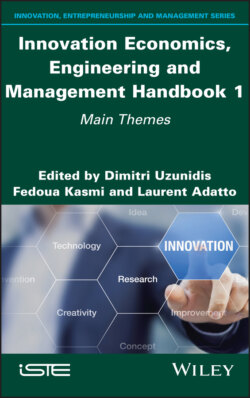Читать книгу Innovation Economics, Engineering and Management Handbook 1 - Группа авторов - Страница 36
3.4. The notion of innovation in the face of agricultural and food transitions
ОглавлениеThe succession of crises in the economic growth model that is based on industrialization, by renewing the role of agriculture and food in development mechanisms, calls into question the very nature and conceptualization of innovation in order to respond to global challenges. The work of development economists in this case highlights how pressure on resources structures the innovation capacities of agrarian societies, which enhance the productive potential of ecosystems (Boserup 1981). The notion of innovation focused by a technological definition becomes more complex as it broadens to include the institutional organizational dimensions that structure the conditions of change. In this renewal, the diffusionist paradigm of innovation in agricultural research becomes fragmented, and new approaches and new uses of innovation in agriculture emerge. There are at least three categories of uses that can be highlighted (Touzard et al. 2014).
Agriculture and agribusiness can, first of all, be simply considered as empirical fields among others, into which we can import the academic frameworks of innovation analysis (evolutionism, neo-institutionalist, regulation); hence the work related to the development of national innovation strategies (Faure et al. 2019). Secondly, in political economy on the changes in the sector and its relationships with society.
Finally, it is necessary to underline the existence of analyses, often linked to development actions in agriculture. Innovations are then associated with the particular functioning of farms, the management of externalities and local resources (land, water, landscapes, etc.), and concern products whose quality is linked to their origin, which calls for specific approaches to localized agri-food systems. The analysis of sectoral conditions of innovation leads to the use of specific concepts, such as Agricultural Innovation Systems (Klerkx et al. 2010), calling for a reform of the organization of research or public policies for innovation in agriculture.
In sociology, several research communities are documenting these evolutions of the notion of innovation. The work of Chambers et al. (1989) and Darré et al. (1989), in particular, paves the way to research that restructures local empirical knowledge and endogenous innovation. They shift the analysis from categories (researchers, farmers, etc.) to local networks of actors structuring collective innovation capacities. Other research brings a consideration of the history and the institutional context that determine technical and organizational changes into the analysis (Chauveau et al. 1999).
This emergence contributes to the development of a new approach to producing knowledge and innovation on living organisms, with a view to promoting varietal innovation, which has been disrupted by societal controversies on genetically modified organisms. At another level, analysis of the role played by the evolution of technical systems, such as agro-ecology and social structures, according to organizational scales, questions the theoretical frameworks for analyzing transitions.
The analysis of innovation in, or related to, the agricultural sector thus prompts new disciplinary collaborations in order to integrate the role of institutions, networks or knowledge. These collaborations underline the importance of local context for social innovations: sustainable nutrition and/or territorial development thus contribute to the renewal of work on innovative environments and local productive systems.
